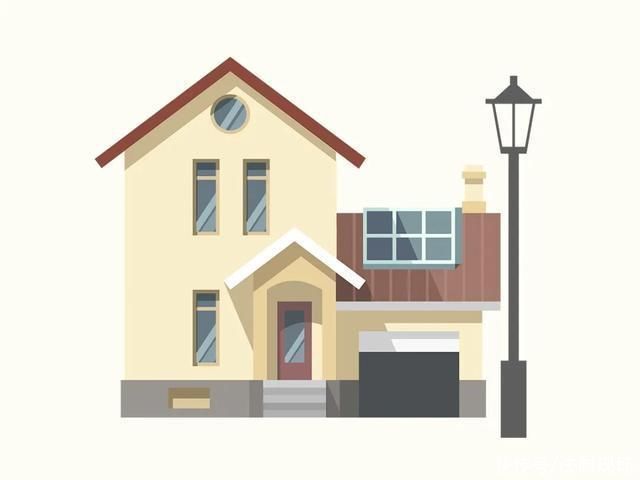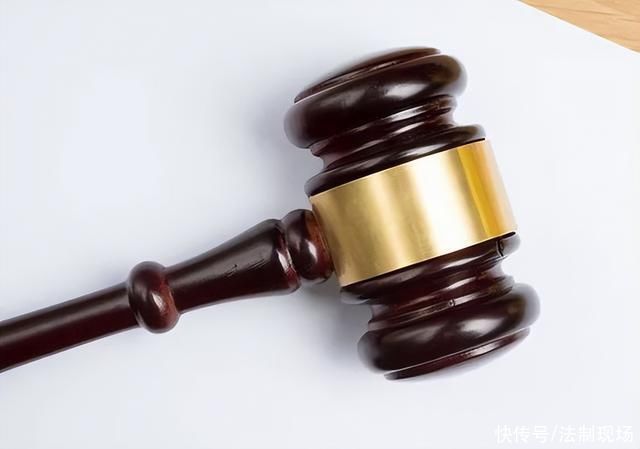Lao Chen and Lao Han have been neighbors for decades, but they became enemies because of a ginkgo tree. Lao Chen believed that the trees that Lao Han planted affected his own rights such as lighting, so he sued Lao Han to the court.
Recently, the Intermediate People’s Court of Nantong City, Jiangsu Province has made a decision on this adjacent relationship. In the dispute case, a final judgment was made to maintain the first instance, and Lao Chen’s claim was dismissed.

Lao Chen and The old Han family lived next to each other, with the old Chen in the north and the old Han in the south. In the early years, Lao Han planted a ginkgo tree on his contracted land, which is now covered with pavilions. However, the ginkgo tree has brought trouble to the neighbor Lao Chen. It turns out that this ginkgo tree is located at the south gate of Lao Chen’s house, next to the road in front of Lao Chen’s house. Ginkgo fruit is always mixed with the rice and wheat and other grains dried by Lao Chen’s house.
Once Lao Han learned about it, he sawed the branches that affected the lighting towards Lao Chen’s courtyard However, Lao Chen felt that the ginkgo tree should be removed once and for all. The two were deadlocked, and Lao Chen filed a lawsuit with the Rugao City People’s Court, asking Lao Han to remove the ginkgo tree, stop obstructing its lighting and passage, and ask Lao Han to pay ten years for the removal of fallen leaves.

After the court hearing It is believed that the ginkgo tree is a deciduous tree, and according to its growth habit and Lao Chen’s lawsuit, it can be confirmed that the time period of the affected ginkgo tree’s influence on Lao Chen is the alternate season of autumn and winter every year. Now Lao Han has sawed off some branches of the ginkgo tree extending towards Lao Chen’s house, which has minimized the impact on Lao Chen. Therefore, although the ginkgo tree still has a certain impact on Lao Chen’s life, the impact is within the limit of Lao Chen’s tolerance obligation as a neighbor.
As for the cost of removing fallen leaves claimed by Lao Chen, the court held that Lao Han acted as a The owner of the ginkgo tree has the obligation to clean up the fruit and leaves in time, and Lao Chen has the right to ask him to fulfill his obligation. Secondly, Lao Chen’s behavior of cleaning fruits and fallen leaves was also to protect his own interests, but Lao Chen proposed that he did not provide evidence to prove this claim and should bear adverse consequences.
To sum up, the court ruled to reject Lao Chen’s claim.
Old Chen refused to accept and appealed to the court of second instance. The Nantong Intermediate Court upheld the original judgment after trial.
Court Statement span>
Article 288 of the Civil Code, the adjacent obligee of immovable property shall The principle of convenience, solidarity and mutual assistance, fairness and reasonableness, and the correct handling of adjacent relations. According to Zhang Xiaoguang, the second-instance judge in the case, the adjacent relationship disputes seem to be simple and the amount of the subject matter is not large, but for the parties involved in the lawsuit, the neighbors can’t see each other when they look up. have an impact, which also leads to grievances between neighbors that are difficult to reconcile. Therefore, handling the neighbor relationship well is not only beneficial to the production and life of all parties, but also conducive to the harmony and stability of the society.
The adjacency system aims to regulate the interests of rights holders of adjacent real estate Conflict is to make it clear that one party provides certain convenience to the other party, and tolerates the harm caused to itself because of the convenience. Simply put, the adjacency relationship is essentially a relationship of rights and obligations between providing convenience and tolerating harm. The obligation to tolerate is the core of the neighbor relationship, which aims to achieve effective coordination of conflicts of interest between people. The property rights of the Civil Code refer to “providing necessary convenience” and “not violating regulations” or “not jeopardizing safety” in several articles. Obligation serves as the criterion for judging the boundary of the exercise of rights in adjacent relations.
In this case, although Lao Han’s ginkgo tree has certain influence on Lao Chen’s life, However, Lao Han has pruned the branches and leaves of the ginkgo tree and cleaned up the fallen leaves in time. The impact of the ginkgo tree on Lao Chen has been obviously slight, and Lao Chen is obliged to tolerate. The two sides should respect each other, trust each other, understand each other, and cherish the decades-long harmonious neighborhood friendship.
The neighbor’s obligation to tolerate has reasonable limits, and the Ginkgo tree in question continues to grow As the tree canopy continues to expand, Lao Han continues to take the initiative to prune and saw off some branches that affect Lao Chen’s family, as well as clean up fruits and fallen leaves.
Source: People’s Court News p>
[Source: Beijing Haidian Court]
Statement: Reprint This article is for the purpose of conveying more information. If the source is incorrectly marked or infringes your legal rights, please contact the author with the ownership certificate, we will correct or delete it in time, thank you. Email address: [email protected]